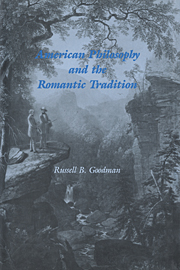Summary
Although I didn't know it at the time, this book started many years ago with my reading Stanley Caveil's The Senses of Walden. Even before making much sense of Cavell's book (something I began to do years later, camped for a week on a mountain ridge in New Mexico's Gila Wilderness), I found the following passage provocative:
Study of Walden would perhaps not have become such an obsession with me had it not presented itself as a response to questions with which I was already obsessed: Why has America never expressed itself philosophically? Or has it – in the metaphysical riot of its greatest literature? Has the impulse to philosophical speculation been absorbed, or exhausted, by speculation in territory, as in such thoughts as Manifest Destiny? Or are such questions not really intelligible?
It was not clear to me that such questions were intelligible or even worthwhile, and so it was easy enough to ask back: “Why should America express itself philosophically? Must every country do so? Is a figure like Aristotle or Descartes not an international figure, not an expression of Greek or French culture?” I could have said too that there was an American philosophy, enunciated by such figures as C. I. Lewis and W. V. O. Quine, and before them, perhaps (for I was thinking as someone trained in postwar “Anglo-American” departments of philosophy, where they have traditionally not been viewed as serious contributors to the philosophical dialogue), Dewey and James.
- Type
- Chapter
- Information
- American Philosophy and the Romantic Tradition , pp. vii - xPublisher: Cambridge University PressPrint publication year: 1991



